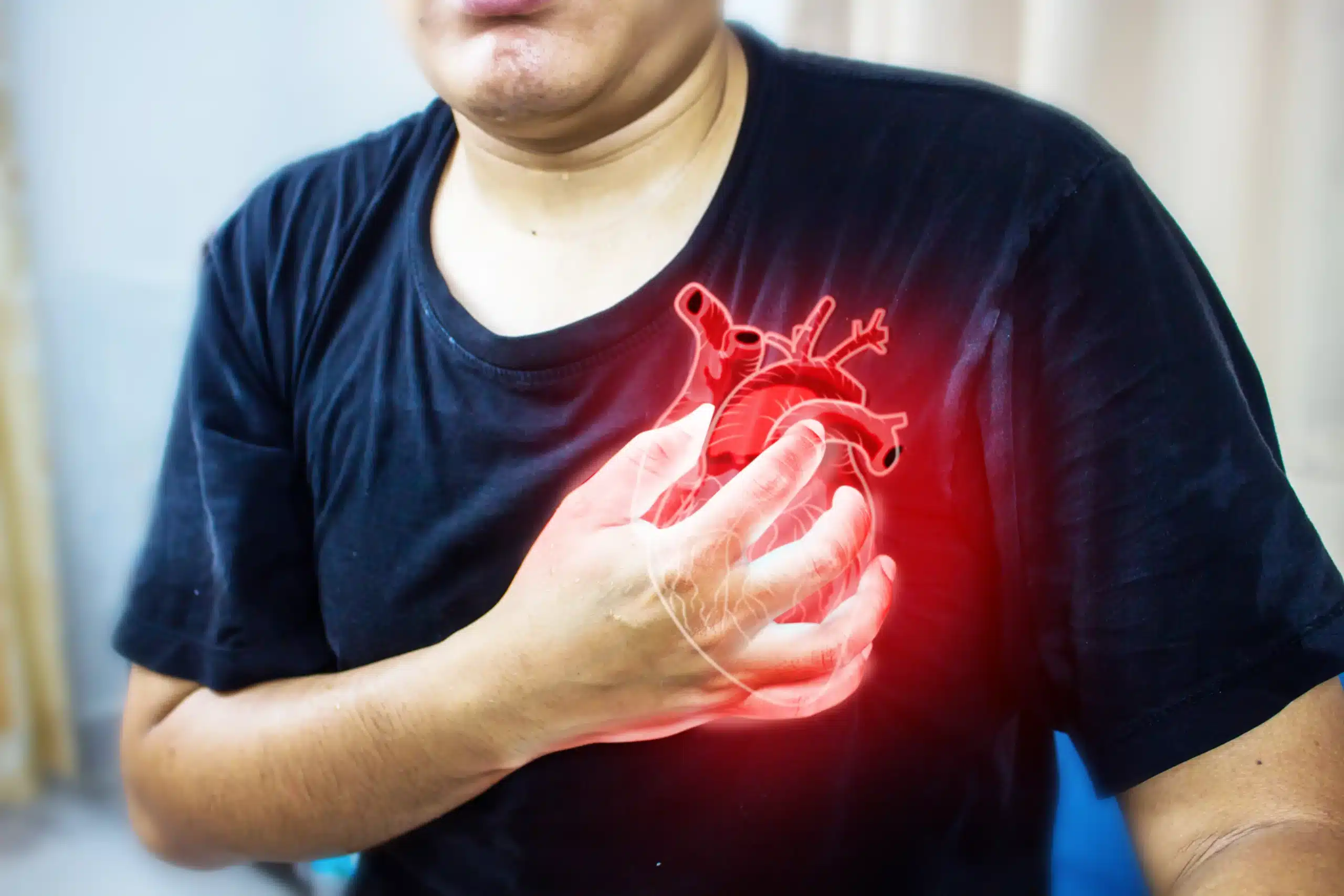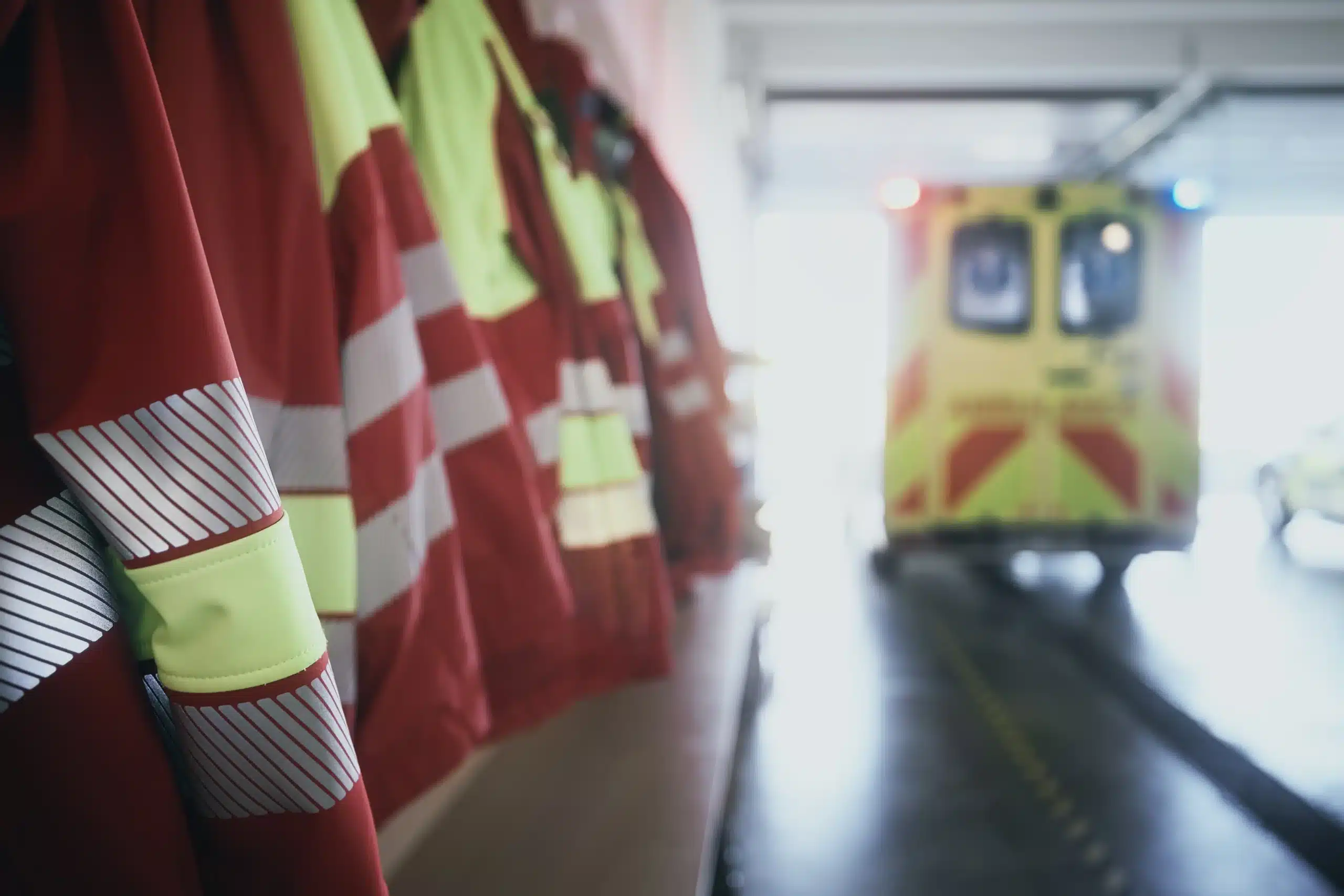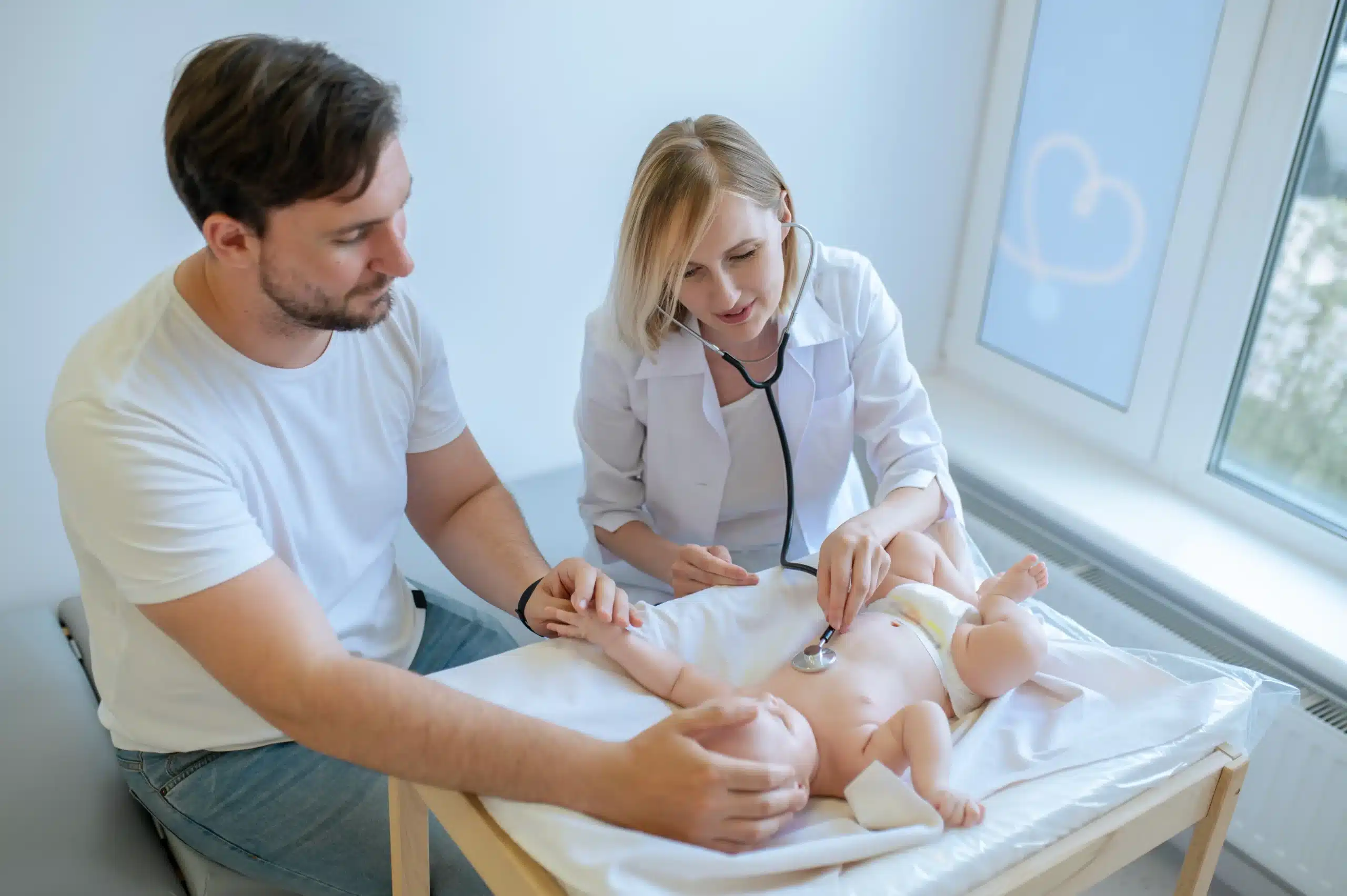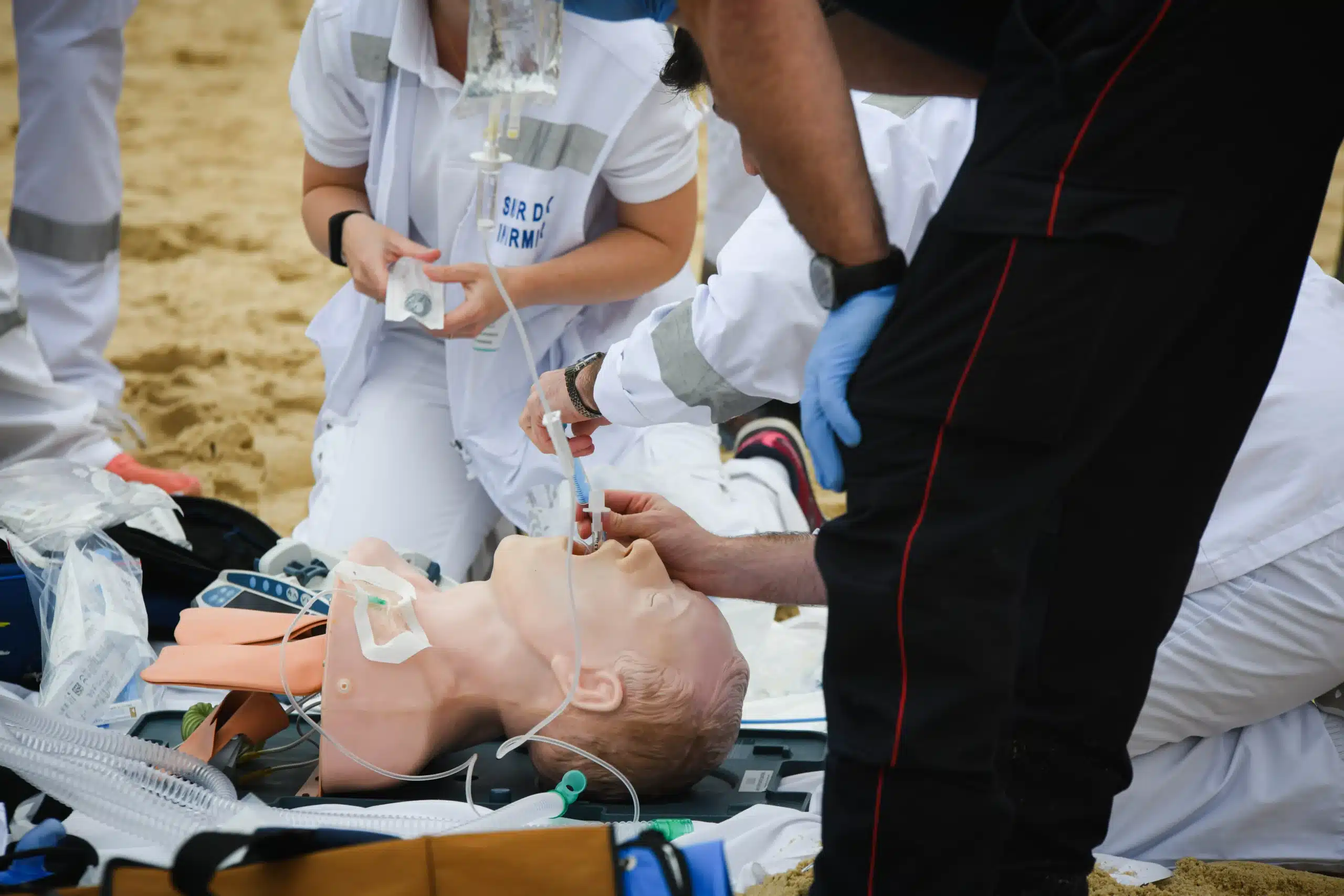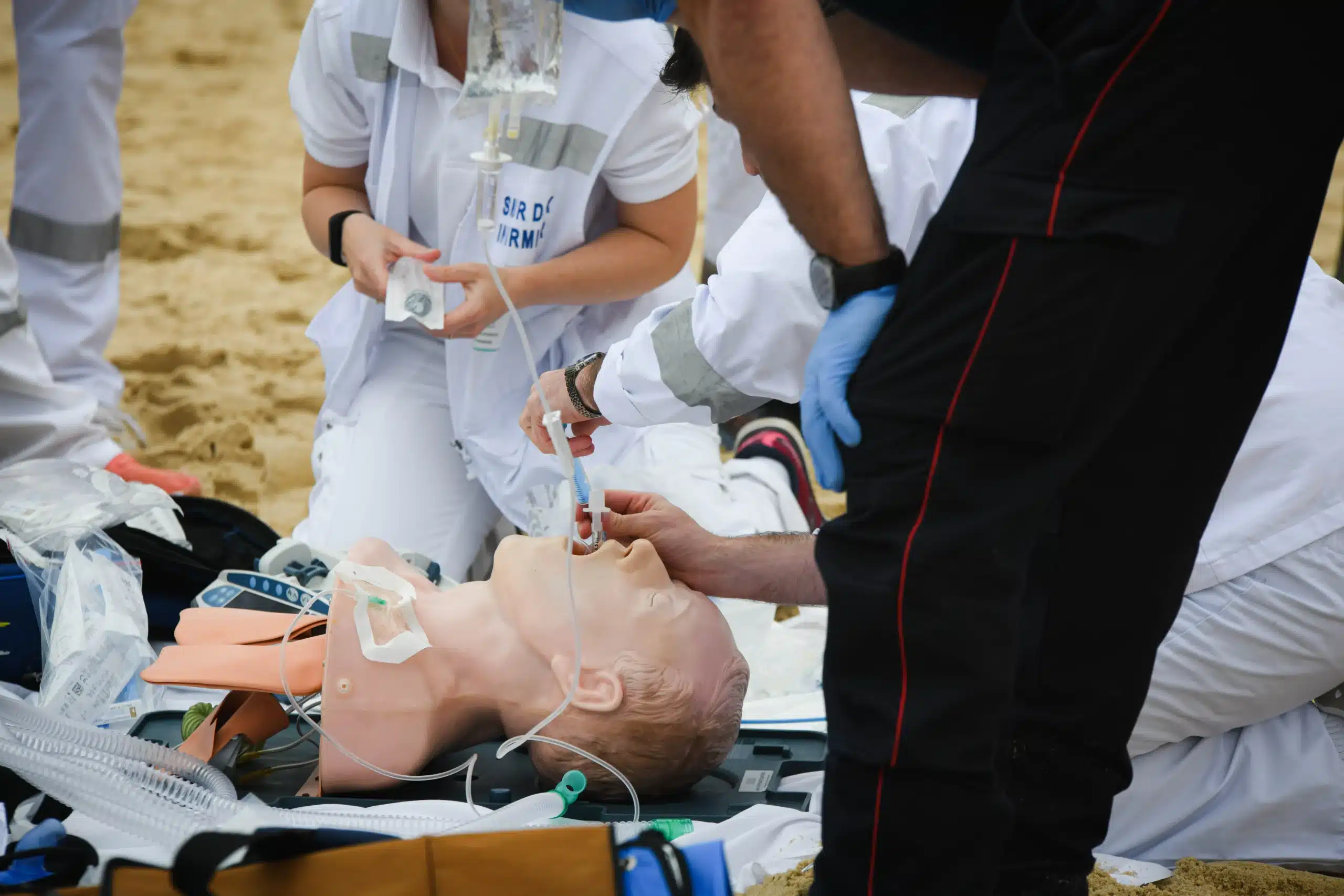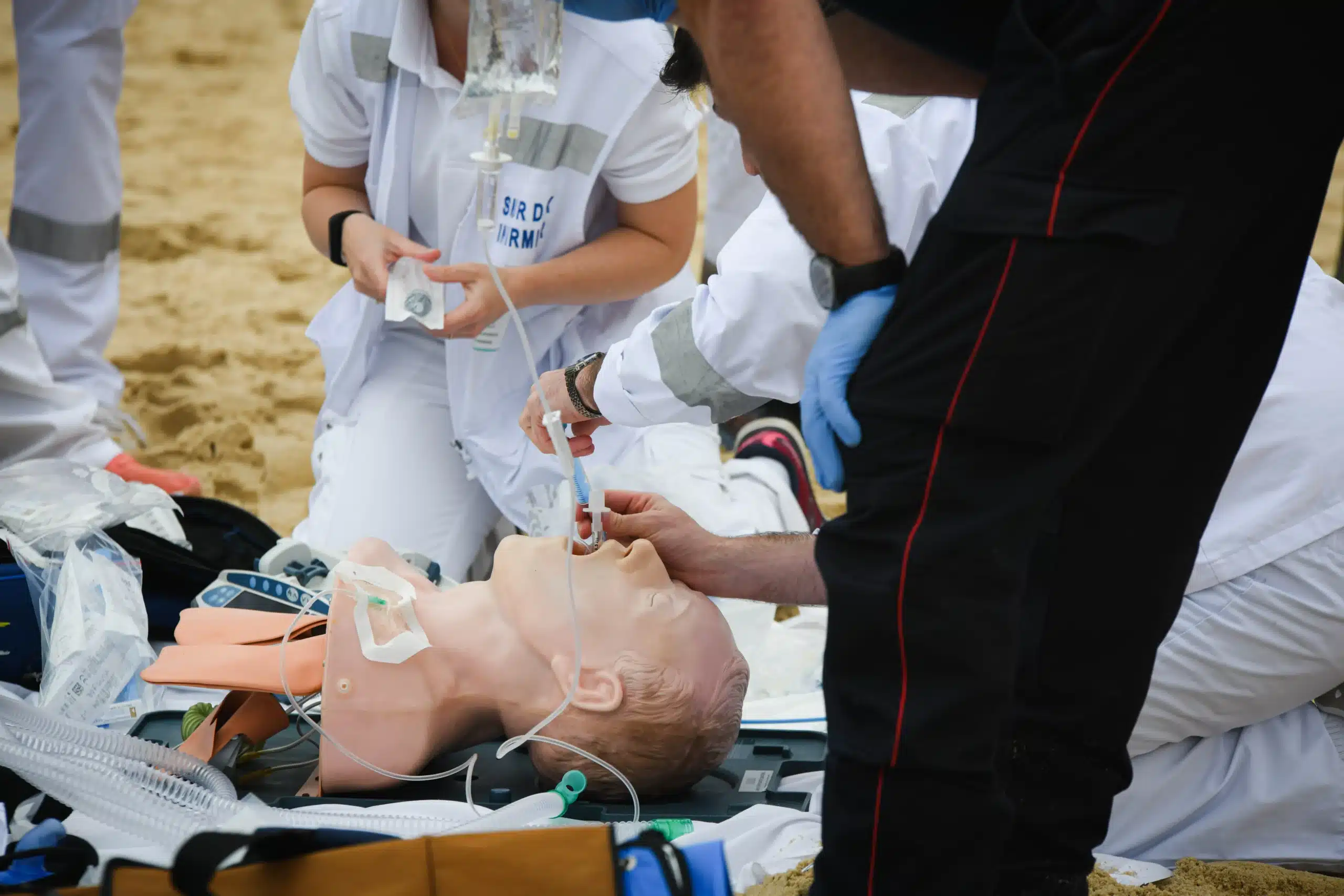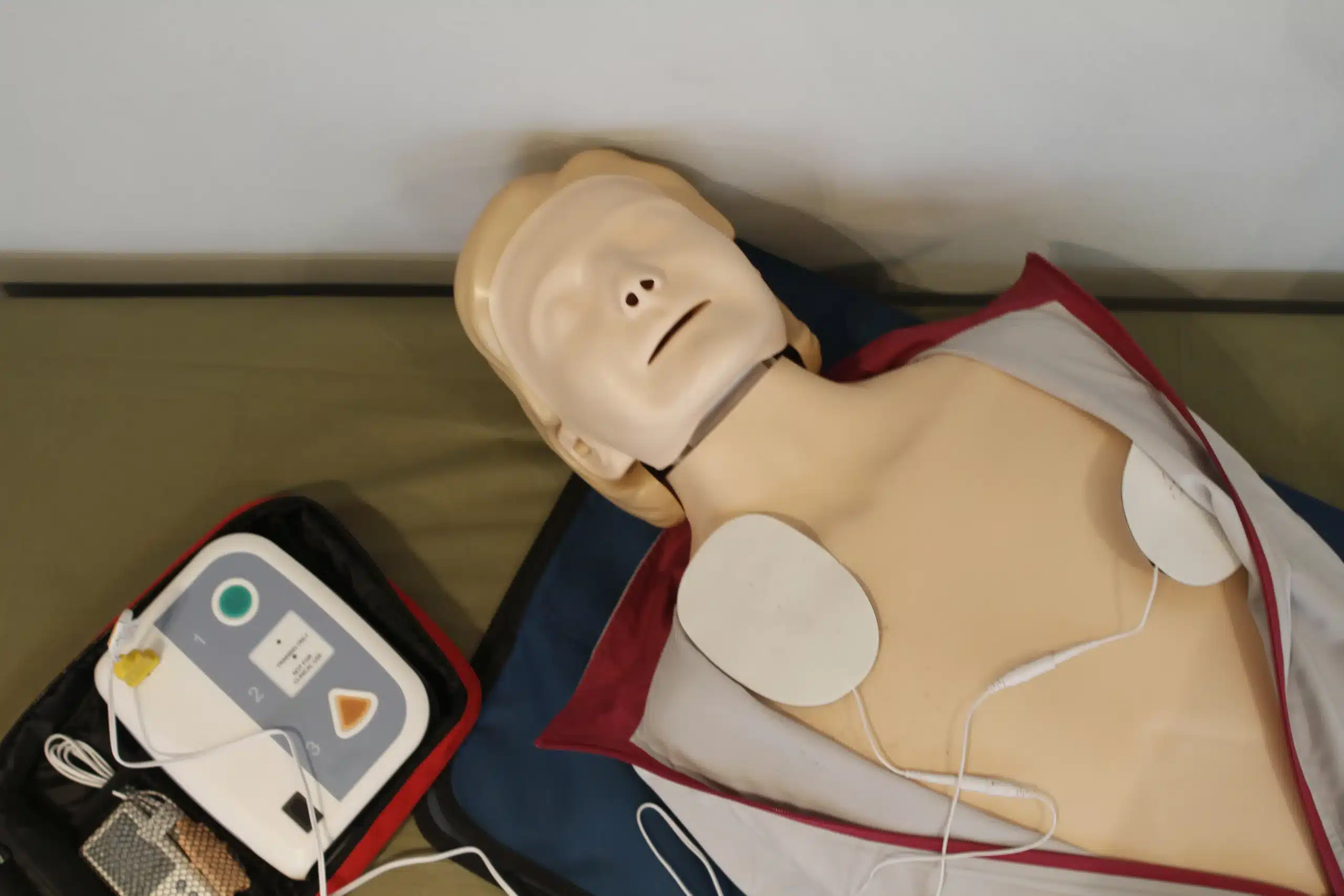Emergencies happen, and knowing first-aid can transform you from a bystander into a life-saver. This guide provides a comprehensive overview of first-aid training in Dublin, equipping you with the knowledge and resources to choose the right course for your needs. We’ll explore various course types, from basic first-aid for everyday situations to specialized training for healthcare professionals. Discover reputable training providers in Dublin, understand what to expect during a first-aid course, and learn about the certification process. We’ll also discuss the costs involved, the long-term value of first-aid training, and the importance of choosing qualified instructors. Finally, we’ll debunk common first-aid myths, giving you the confidence to act quickly and effectively in emergencies. Your journey to becoming a confident first-aider in Dublin starts here.
Key Takeaways
- First aid skills empower you in emergencies: Equip yourself to handle anything from minor injuries to life-threatening events by learning first aid. Find a course that fits your needs, whether it’s basic life support, pediatric first aid, or specialized training.
- Select the right course: Think about your specific requirements, compare what different providers offer, and consider scheduling and learning format (online vs. in-person). Seek out qualified instructors with relevant certifications and experience.
- Keep your skills current: First aid certifications usually expire. Stay up-to-date with recertification courses and continuing education to maintain sharp skills and knowledge of the latest guidelines. This ongoing learning ensures you’re always ready to help.
What is First Aid Training in Dublin?
First aid training in Dublin gives you the skills to handle medical emergencies. These courses cover a wide range of situations, from minor injuries like cuts and scrapes to more serious, potentially life-threatening, conditions. You’ll learn how to assess an emergency, provide immediate care, and keep someone safe until professional medical help arrives. First aid courses cater to diverse groups, whether you’re looking for training for your workplace, school, or community group. It’s about empowering you to confidently handle emergencies. Knowing first aid can truly make a difference. Many training programs offer ongoing support and resources to help you maintain and expand your skills. The ultimate goal is to create safer environments, and first aid training is a crucial part of that. A popular option in Dublin is the First Aid Responder course, which provides a solid foundation in first aid principles and practices.
First Aid Course Types
Knowing which first aid course suits your needs can feel overwhelming with so many options. This section breaks down common first aid course types available in Dublin to help you make the right choice.
Basic First Aid
Basic first aid courses provide foundational knowledge and skills to handle common medical emergencies. These courses typically cover assessing a patient, managing injuries like cuts and burns, and knowing when to call for help. A basic first aid course is an excellent starting point for anyone looking to gain confidence in responding to emergencies. Many providers, like First Aid for Everyone, offer basic courses suitable for everyday life.
Pediatric First Aid
Pediatric first aid courses focus on the specific needs of infants and children. These courses teach participants how to respond to common childhood illnesses and injuries, such as choking, fever, and allergic reactions. Parents, caregivers, teachers, and anyone working with children should consider a specialized pediatric first aid course. Some providers offer these courses in partnership with organizations like Bump, Baby & Me. These specialized courses often include CPR and AED instruction for children.
CPR and AED Training
CPR (Cardiopulmonary Resuscitation) and AED (Automated External Defibrillator) training teaches how to respond to cardiac arrest. Participants learn chest compressions, rescue breaths, and how to use an AED. CPR and AED training is often included in comprehensive first aid courses, such as the Basic Emergency First Aid Training from Emergency First Aid Dublin. It’s also available as a standalone certification. This training is crucial for anyone who might need to respond to a sudden cardiac event.
Workplace First Aid
Workplace first aid courses meet the requirements for designated first aiders in various work environments. These courses often cover more topics than basic first aid, including handling workplace-specific hazards and managing complex medical situations. CC Safety Training offers training designed to equip employees with the skills to manage medical emergencies in professional settings. The Health and Safety Authority (HSA) sets specific requirements for workplace first aid, so ensure any course you choose meets these regulations.
Specialized Courses
Beyond the basics, specialized first aid courses cater to specific needs and interests. These might include wilderness first aid, oxygen administration, or advanced trauma care. Providers like First Aid for Everyone offer a variety of specialized courses. If you have a particular interest or require training for a specific activity or environment, research specialized courses that address those requirements.
Top Dublin First Aid Training Providers
Finding the right first aid training can feel overwhelming. To simplify your search, I’ve compiled a list of reputable organizations offering courses in Dublin. Whether you’re a parent, teacher, or healthcare professional, one of these providers should meet your needs.
Safety Training Seminars
Safety Training Seminars offers American Heart Association (AHA) certified CPR, BLS, ACLS, PALS, and First Aid courses in Dublin, CA. With classes available daily from 8 am to 10 pm, their flexible schedule makes it easier to fit these essential skills into your busy life. They also serve nearby Pleasanton and San Ramon.
First Aid for Everyone
For those seeking training in Dublin, Ireland, First Aid for Everyone offers a variety of first aid courses, both in-person and potentially online. Led by Siobhan, a registered nurse with specialized certifications, their courses offer a personalized approach to learning essential first aid principles.
St. John Ambulance Ireland
St. John Ambulance is a trusted name in first aid training. Their Ireland division offers a comprehensive range of courses covering everything from basic first aid to specialized certifications like Cardiac First Response. They also offer manual handling and fire safety training.
Irish Red Cross
The Irish Red Cross provides CPR/AED classes in Dublin, CA, equipping participants with the skills to handle cardiac emergencies. The Red Cross is known for its commitment to community safety and disaster relief, and their first aid training reflects this expertise.
Order of Malta Ireland
The Order of Malta offers first aid training courses designed for both individuals and organizations. Their focus on practical skills and emergency response helps participants develop the confidence to act effectively in critical situations. Visit their website for specific course details.
What to Expect in a First Aid Course
Knowing what to expect can help you feel prepared and confident going into your first aid training. Here’s a glimpse at the typical components of a first aid course:
Course Duration and Format
First aid courses are designed to be manageable, fitting into busy schedules. The length of these courses varies depending on the provider and the material covered. Expect anywhere from a two-hour refresher to a more comprehensive four-hour course. You’ll find options for in-person training, blended learning (a mix of online and in-person sessions), and fully online courses. Safety Training Seminars offers a variety of schedules and formats to suit your needs.
Hands-on Practice and Simulations
First aid isn’t just about memorizing facts—it’s about developing practical skills. A good first aid course emphasizes hands-on learning. You’ll practice essential techniques like bandaging wounds, splinting injuries, and administering CPR. Many courses incorporate realistic simulations to help you apply your knowledge in a safe, controlled environment. This practice builds muscle memory and confidence, preparing you to respond effectively in a real emergency. You’ll receive your certification card, valid for two years, upon successful completion of the course.
Assessment Methods
Most first aid courses include some form of assessment to ensure you’ve grasped the key concepts and skills. This might involve a written test, practical demonstrations, or a combination of both. Don’t worry, the focus is on your learning and ability to apply the techniques, not on rote memorization. Safety Training Seminars prioritizes student success and provides support throughout the training process. Check out their group discounts for an added bonus.
Provided Materials and Resources
Your learning journey doesn’t end when you leave the classroom. Reputable first aid training providers offer resources to help you retain and refresh your skills. These might include manuals, online materials, or access to refresher courses. This ongoing support ensures you feel confident in your abilities long after you’ve received your first aid certification.
First Aid Training: Cost and Value
Knowing the cost of first aid training and the value it brings helps you make informed decisions. Let’s break down typical expenses, factors influencing price, and how group discounts can make training more accessible. We’ll also explore the long-term benefits and return on investment that first aid training provides.
Typical Price Ranges
First aid course costs in Dublin vary. Basic first aid courses generally cost between €100 and €200 per person. More specialized training, like pediatric or advanced first aid, might be more expensive. Check with various providers like Emergency First Aid Dublin for their pricing.
Factors Affecting Cost
Several elements influence the final cost of your first aid training. Course length, the type of certification offered, the instructor’s experience, and whether you choose online or in-person learning all play a role.
Group Discounts and Special Offers
If you’re training a team, look for group discounts. Many training centers offer reduced rates for multiple participants. These discounts can lower the per-person cost, making it easier to train your entire organization.
Return on Investment
Think of first aid training as an investment. While there’s an upfront cost, the potential long-term benefits are substantial. Equipping your team with first aid skills creates a safer work environment and can reduce the impact of workplace incidents. First aid training contributes to a safer and more prepared workplace. This can mean fewer accidents, lower insurance premiums, and a more confident team. The peace of mind and potential to save lives makes first aid training invaluable.
Instructor Qualifications and Training Quality
Choosing the right first aid course means understanding the quality of instruction you’ll receive. This section explores the qualifications, training standards, and teaching approaches you can expect from first aid instructors in Dublin.
Typical Backgrounds and Certifications
Many first aid instructors in Dublin come from healthcare backgrounds, such as registered nurses or paramedics. This experience provides a solid base for teaching practical skills and theoretical knowledge. Instructors also hold certifications specific to first aid instruction, such as First Aid Response (FAR) and Cardiac First Response (CFR), often with additional qualifications in areas like pediatric first aid or emergency care. First Aid for Everyone, for example, highlights the medical backgrounds and certifications of their instructors. This focus on qualified professionals ensures a high caliber of training.
Ongoing Training Requirements
First aid practices and guidelines are always evolving, so instructors commit to ongoing training to maintain their certifications. This continued development ensures they stay current with the latest techniques and best practices. Recertification often involves comprehensive refresher courses, like the two-day (12-hour) FAR recertification program from St. John Ambulance Ireland. These regular updates help instructors deliver current and effective training.
Teaching Methodologies
Effective first aid training requires engaging and informative teaching methods. Dublin first aid courses typically use a mix of theoretical instruction, practical demonstrations, and hands-on practice. Safety Training Seminars, for instance, is known for its practical, hands-on approach. Many training providers also incorporate simulations and case studies to create realistic scenarios, helping students apply their knowledge and build confidence. Positive student feedback often mentions the quality of instruction and the effectiveness of these teaching approaches.
Get Certified: Process and Skill Maintenance
Getting certified in first aid is straightforward, and maintaining your skills is crucial for effective emergency response. This section guides you through the process, from initial certification to ongoing skill development.
Steps to Obtain Certification
To become certified, find a reputable training provider offering courses aligned with recognized standards. Safety Training Seminars offers American Heart Association (AHA) certified courses in CPR, BLS, ACLS, PALS, and First Aid in Dublin. The American Red Cross also provides CPR/AED classes in the area. Once you’ve chosen a provider and course, simply register and complete the training.
Certification Duration
Most first aid certifications, including those from the Red Cross for CPR/AED, are valid for two years. This timeframe helps ensure your skills and knowledge remain current. Check with your chosen training provider to confirm the specific duration of your certification.
Recertification Requirements
To maintain your certification, complete a recertification course before it expires. These courses cover updates to guidelines and reinforce essential skills. Check with your certifying organization, such as the American Heart Association, for specific requirements and timelines. Don’t let your skills lapse—stay up-to-date to provide the best possible care.
Continuing Education Opportunities
Even after getting certified, continuing education expands your skillset. Providers like Chris Mee EHS International and Emergency First Aid offer a range of advanced and specialized courses. These opportunities build upon your foundation, making you a more confident and effective first responder. Staying informed about the latest practices is a valuable asset.
Choose the Right First Aid Course
Finding the right first aid course means understanding your needs, comparing available options, and thinking about scheduling and format. Let’s break down each factor to help you make a smart choice.
Assess Your Needs
Before searching for a first aid course, think about why you need this training. Are you required to have certification for your job, or are you looking to gain life-saving skills? Do you need basic first aid knowledge, or are you interested in more specialized training like CPR and AED instruction? Understanding your needs helps you narrow the options and choose the most relevant course. For example, healthcare providers often require certifications from the American Heart Association, while a childcare provider might prioritize pediatric first aid.
Compare Course Offerings
Once you understand your needs, research different first aid training providers in Dublin. Look at organizations like Safety Training Seminars, St. John Ambulance, and the Irish Red Cross. Compare the course content, duration, and certification offered. Some courses focus on specific industries or situations, so ensure the course aligns with your requirements. Also, check if the certification is nationally or internationally recognized. Consider factors like class size and the opportunity for personalized instruction. Smaller classes may offer more individual attention.
Scheduling and Flexibility Options
Finding a course that fits your schedule is essential. Look for providers that offer various class times and dates, including weekend and evening options. Safety Training Seminars, for instance, offers classes daily, providing flexibility. If you need to renew a certification, consider the streamlined RQI program for BLS, ACLS, and PALS recertification. This efficient approach can save you time.
Online vs. In-Person Training
Deciding between online and in-person training depends on your learning style. Online courses offer the convenience of learning at your own pace and from anywhere with internet access. However, in-person classes provide hands-on practice and the opportunity to ask questions and interact with an instructor and classmates. Consider which learning environment best suits your needs. Even if you choose online training, remember that staying current with in-person skills practice is highly recommended, especially for skills like CPR. Check if the provider offers refresher courses or opportunities for ongoing practice.
Benefits of First Aid Training
Knowing what to do in a medical emergency can make all the difference. First aid training equips you with the skills and confidence to respond effectively, potentially saving lives. Let’s explore some key advantages of becoming certified.
Prepare and Build Confidence
First aid training provides more than just textbook knowledge. These certification courses often combine theoretical learning with hands-on, practical training. This approach allows you to develop true competence in administering first aid, building your confidence to act quickly and decisively when needed. Simulating real-life scenarios helps you stay calm under pressure and apply your skills effectively.
Professional Development
A first aid certification is a valuable asset in many professional settings. Basic first aid training offers practical skills applicable to various workplace situations. Whether you’re an employee, manager, or simply a bystander, having these skills can be invaluable during emergencies. It demonstrates a commitment to safety and preparedness, which can enhance your professional image. For specific industries like healthcare, childcare, and fitness, it’s often a requirement.
Contribute to Community Safety
First aid training empowers you to make a real difference in your community. By learning these essential skills, you become a valuable resource for friends, family, and even strangers who may require immediate medical assistance. Regular first aid and CPR training can significantly improve the effectiveness of first aiders and lead to better outcomes for those injured. You become an active participant in creating a safer environment for everyone.
Ensure Legal Compliance for Businesses
Many businesses require employees to have first aid certifications to comply with safety regulations and create a safer work environment. Providing first aid training for your team not only fulfills these requirements but also fosters a culture of safety and preparedness within your organization. Contrary to some common misconceptions, providing first aid is generally protected by Good Samaritan laws, shielding you from legal liability when you act in good faith. This knowledge empowers your team to respond confidently to emergencies without undue concern.
Debunking First Aid Myths
It’s easy to fall prey to first aid myths, especially with outdated advice circulating online. Let’s clear up some common misconceptions.
Legal Concerns About Providing First Aid
One persistent myth is that you can be sued if you provide first aid and something goes wrong. This fear often prevents people from helping someone in need. The truth is, Good Samaritan laws protect those who offer assistance in good faith. These laws vary by state, but they generally shield you from liability unless you act recklessly or with gross negligence. For more details on California’s Good Samaritan laws, review the California Health and Safety Code. Remember, providing timely first aid can make a real difference, and the law supports your efforts to help.
Misconceptions About Treatment Methods
Several myths persist about treating specific injuries. You might have heard that putting butter or oil on a burn soothes the pain. Unfortunately, this is dangerous. These substances can trap heat, worsen the injury, and increase the risk of infection. The best approach for minor burns is to cool the area with cool (not icy) running water and cover it with a sterile dressing. Another common misconception is using hot water to warm frostbitten skin. This can damage the tissue. Instead, gradually warm the affected area with lukewarm water or body heat. For reliable first aid tips, visit the American Red Cross website.
Who Should Learn First Aid
Some believe only healthcare professionals need first aid training. This isn’t true. Anyone can benefit from learning these essential skills. From parents and teachers to office workers and construction workers, having basic first aid knowledge empowers you to respond effectively in emergencies. Consider taking a comprehensive first aid course to gain practical skills and the confidence to act when needed. You never know when you might be the one who can make a difference.
Related Articles
- HeartCode PALS Dublin: Your Certification Guide – Pleasanton CPR Classes
- RQI Dublin: The Ultimate Guide to Resuscitation Quality Improvement – Pleasanton CPR Classes
- First Aid Classes in Pleasanton: Your Guide – Pleasanton CPR Classes
- Life-Saving Workplace CPR and First-Aid Training
- Debunking Top CPR Myths for Better Life-Saving
Frequently Asked Questions
What are the different types of first aid courses available in Dublin?
Dublin offers a range of first aid courses, from basic first aid for everyday emergencies to specialized courses like pediatric first aid, CPR/AED training, and workplace-specific programs. The best choice depends on your specific needs and interests. If you’re unsure which course is right for you, contact a training provider to discuss your options.
How much does first aid training in Dublin typically cost?
The cost varies depending on the course type, duration, and provider. Basic first aid courses usually fall between €100 and €200, while more specialized training might have a higher price tag. Many providers offer group discounts, so inquire about those if you’re training a team.
What can I expect during a first aid course?
Expect a blend of theoretical instruction, practical demonstrations, and hands-on practice. Most courses incorporate realistic simulations to help you apply your knowledge in a safe environment. You’ll learn essential skills like bandaging, splinting, and CPR, and most courses include an assessment to ensure you’ve grasped the key concepts.
How do I choose a reputable first aid training provider?
Look for providers with experienced instructors who hold relevant certifications. Check if the provider offers courses aligned with recognized standards, such as those from the American Heart Association or the Red Cross. Read reviews and testimonials to gauge the quality of instruction and student satisfaction. Consider factors like class size, scheduling flexibility, and the availability of ongoing support and resources.
How do I maintain my first aid certification after completing a course?
Most first aid certifications are valid for two years. To maintain your certification, you’ll need to complete a recertification course before it expires. These refresher courses ensure you stay up-to-date with the latest guidelines and best practices. Many providers offer continuing education opportunities to further develop your skills and knowledge.
